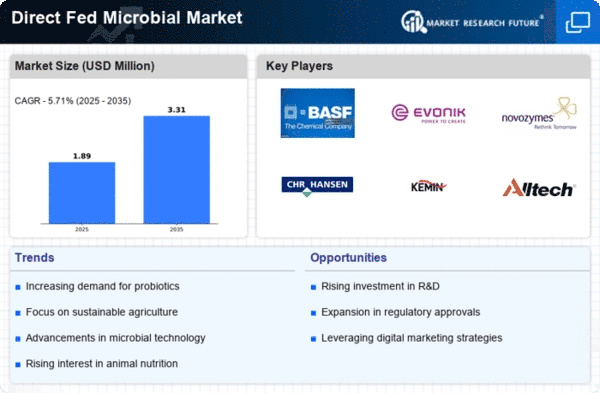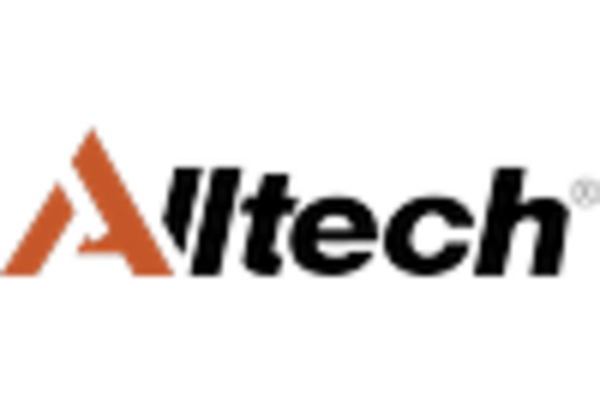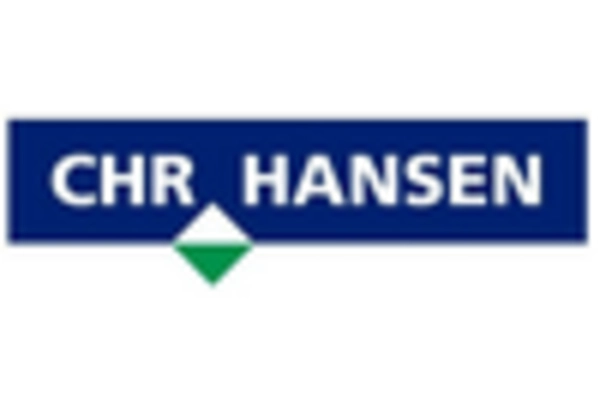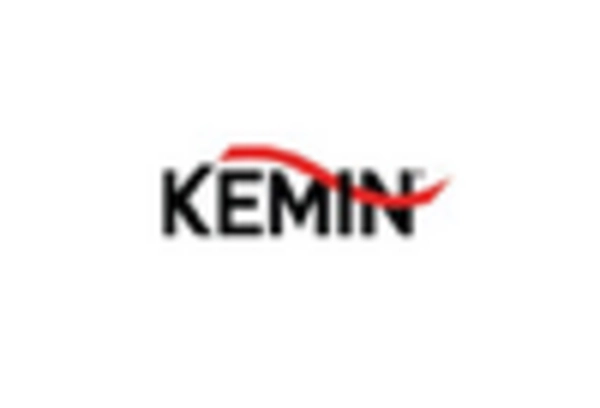Market Share
Direct Fed Microbial Market Share Analysis
The growing knowledge of gut health's significance in animal and human well-being is changing the direct-fed microbials (DFMs) business. DFMs are replacing antibiotics in animal nutrition, a major development in this sector. DFMs, comprising beneficial bacteria and yeast, are gaining popularity for their capacity to balance cattle gut microbiota in light of antibiotic resistance and sustainable farming. This move toward DFMs supports the worldwide effort to limit antibiotic usage in animal agriculture and promotes animal digestive health.
DFMs are affected by consumer demand for natural and sustainable goods. Demand for livestock products from DFM-supplemented animals rises as people seek food with fewer synthetic ingredients and ecologically friendly production. DFMs boost immunological function, food absorption, and animal health. This consumer trend emphasizes the demand for natural, sustainably produced meat and dairy.
DFM trends are influenced by precision animal husbandry and digital technology. Farmers can more accurately analyze and improve animal health and performance using sensors, data analytics, and monitoring systems. DFMs improve gut health, nutrient utilization, and feed efficiency for precision animal nutrition. This data-driven strategy follows the trend of using technology to increase efficiency and sustainability in contemporary agriculture.
The companion animal DFMs market is affected by humanizing pet care. Pet owners want healthy pet food more. DFMs, which promote a healthy gut flora, are used in pet nutrition. This trend reflects dogs' growing position as family members and the desire to provide them human-style nutrition, including functional components like DFMs.
DFMs are being used worldwide as more areas realize their advantages for animal diets. This approach is used in both established and developing economies. This worldwide trend highlights the need for sustainable solutions to standard feed additives to improve animal health and performance in varied agricultural settings.
DFM R&D promotes innovation and product variety. To address animal nutrition difficulties, manufacturers are developing innovative microbial strains, sophisticated formulations, and tailored DFM mixes. DFMs are being improved to improve gut health, combat antibiotic resistance, and satisfy the demands of varied animal species and production methods.
DFM market growth depends on regulatory backing and certification programs. DFMs are important in animal feeding, thus governments and international organizations are setting safety and effectiveness requirements. Certification schemes reassure farmers, feed makers, and consumers about DFM product quality and compliance, promoting ethical and sustainable animal production using these microbials.



















Leave a Comment